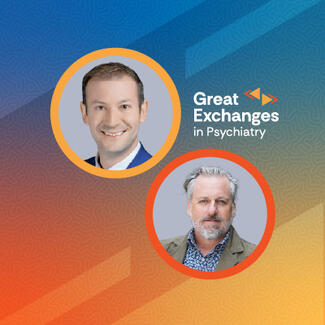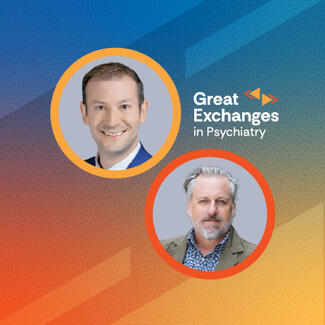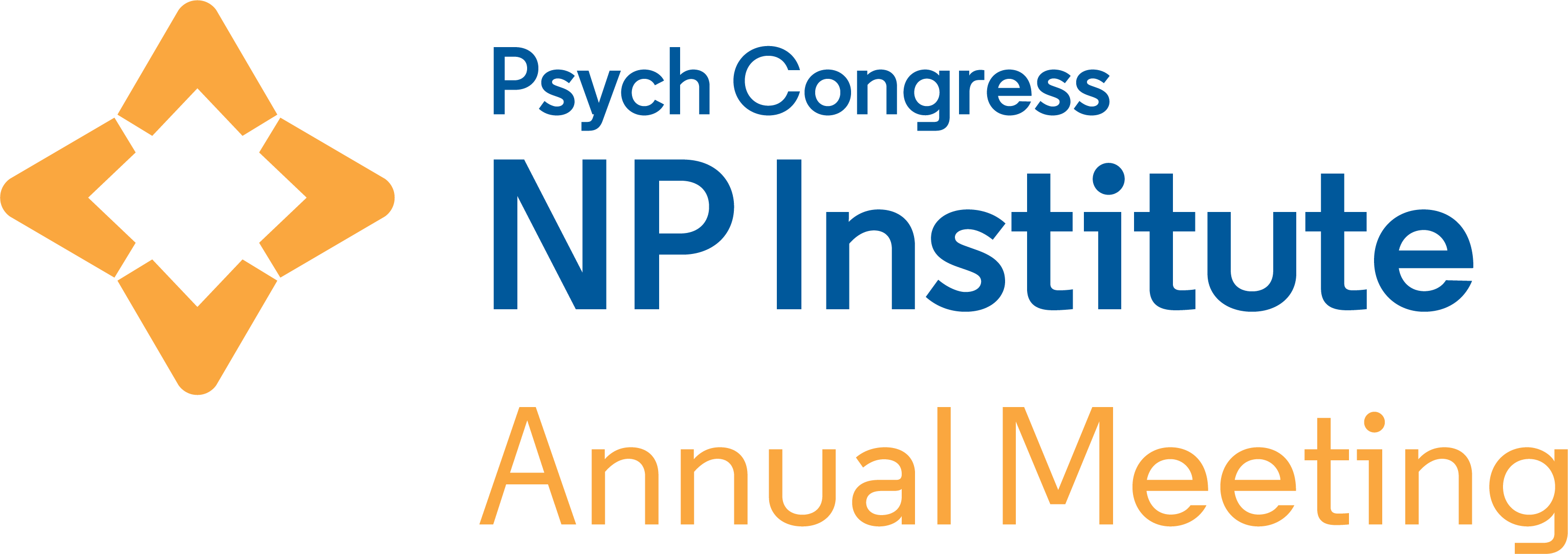Knowing When to Refer a Patient for Esketamine
When should clinicians consider esketamine or transcranial magnetic stimulation (TMS) for depression—and how early is too early to refer? In this video taken at the 2025 Psych Congress NP Institute, Brittany Albright, MD, MPH, consultant, Psych Congress, and Kristian Dambrino, DNP, PMHNP-BC, consultant, Psych Congress, share practical strategies for timely referral, collaboration between providers and treatment centers, and overcoming knowledge gaps.
Read the Transcript
Kristian Dambrino, DNP, PMHNP-BC: Hey, I am Kristian Dambrino. I'm a psychiatric nurse practitioner living and working in Nashville, Tennessee.
Brittany Albright, MD, MPH: I'm Dr Brittany Albright and I'm an adult and addiction psychiatrist from Charleston, South Carolina, and I own Sweetgrass Psychiatry. Kristian, I'm fortunate that I have the benefit at my treatment center of we offer esketamine and transcranial magnetic stimulation, and I know you're a referrer, and so when do you decide when it's an appropriate time to refer either to neuromodulation or esketamine? How do you sort that out?
Dr Dambrino: Well, I try to make that decision as early as possible because we know that early improvement within the first 14 days of treatment with an antidepressant as monotherapy can make the difference in sustained remission. If we see an improvement, we're not talking about response necessarily or remission, but if we see that in the first 14 days, of course I've actually talked to some providers that are like, no, I'm not going to tell my patients that they're going to see really profound results in 2 weeks. We want to have reasonable expectations.
But to your point, I'm always thinking about referral. One, we talked a lot in our presentation about how great collaboration is in the best interest of the patient, so I love working with providers like you where that line of communication is always open to first see is this an appropriate patient? Many people are already appropriate because we want to see fast results. We want to see results that also last, but I always want to collaborate with treatment centers like what you have one as well. And just note, is this patient the right patient for this treatment at this point in their journey? And so I'm always considering it really, I know we're talking about treatment resistant depression, but wouldn't it be great if we don't get to that resistant place yet.
Dr Albright: Yeah, and we start talking earlier in the conversation, especially to convey hope to patients that we're going to try this medication first. If it doesn't work, we're going to try one more, and if that doesn't work, I'm going to give you my very effective treatments. I'm not going to save them until the end of the line.
Dr Dambrino: Because that's the mistake is I think a lot of times when I'm talking to my colleagues, people will wait. They'll wait such a long time before they finally refer, and I don't think we have to wait that long. It provided we can get coverage for a treatment, I think we need to consider this as early as possible. And so just really grateful, again, to be able to have that option.
Dr Albright: I love being a treatment center too and collaborating with my referrers because it's such a great way to get to know fellow colleagues in my community. I formed such deep friendships as we share challenging patients, and it has very much alleviated the majority of my burnout as a clinician because I have a team, I have allies in this fight against treatment resistant depression, and I have effective solutions.
Dr Dambrino: Yeah, absolutely. But you make a good point about the burnout piece too. For me, one of the things I love about being a part of Psych Congress is that constant learning. I mean, one the people that like you and working with some of the educators just loved getting to know you, but just we have to be learning all the time. I'm 8 years into clinical practice at this time as a nurse practitioner, and sometimes the longer that we go, we get a little too comfortable.
Dr Albright: We do.
Dr Dambrino: I remember learning that in my graduate education and having some educators kind of caution me, be careful because once you start wanting to, I remember telling them, I just want to be comfortable. And they're like, actually, you may not want to get too comfortable because those are the points at time that we may miss an important referral or we may miss intervening early with a glutamatergic agent.
Dr Albright: Thank you for highlighting that because I had a wonderful conversation with a nurse practitioner earlier today and she said, I'm so interested in esketamine, but my collaborating physician doesn't believe in it and will not allow me to prescribe it or refer patients. And I said, the problem is not you, the problem is your collaborating physician and you might want to find a physician that's more up-to-date on research and best practices for patient care because esketamine is only the second FDA-approved medication for treatment resistant depression. Number one, it's the only medication FDA approved for MDD with SI. And so I question that physician and I think that's appropriate for nurse practitioners to do that.
Dr Dambrino: Right. Well that also highlights the importance of education and in our Q&A session, you did such a beautiful job too, of leading with the data, which I think is helpful and anytime that we're educating, I think that's an important piece of here's the evidence that we have, here's the data that we have in terms of, because sometimes people will have that question of, well, how long does it last and what side effects should I be worried about? And leading with that data really empowers the clinician to make those decisions or have a conversation with a collaborating physician where there's like, well, actually, here's the data and if there is a knowledge gap and vice versa, if there's a knowledge gap for nurse practitioners or PAs that there's that, again, that's the piece of collaboration that's so valuable is that we do that for each other.
Dr Albright: I like that. Not to shame our brother or sister who has a knowledge gap, but to help bridge that gap. Right.
Dr Dambrino: I'm Kristian Dambrino, thank you so much for joining us. We really hope that this was helpful and something that you can take back to your own clinical practice.
Dr Alrbight: I'm Brittany Albright and we appreciate the attention and we look forward to meeting you at one of the upcoming Psych Congress events.
Brittany Albright, MD, MPH, is a Harvard-trained, double board-certified adult and addiction psychiatrist and the founder of Sweetgrass Psychiatry, the largest physician-owned psychiatry practice in South Carolina. Dr Albright completed her psychiatry residency at Massachusetts General and McLean Hospitals, where she served as Chief Resident of Addiction Psychiatry. She now serves as an Affiliate Assistant Professor at the Medical University of South Carolina, where she also trained in addiction psychiatry.
A published researcher with over 20 abstracts and 15 peer-reviewed manuscripts, Dr Albright is a national speaker and consultant focused on innovative psychiatric treatments and clinician education. Her certifications in transcranial magnetic stimulation and psychedelic-assisted psychotherapy reflect her specialization in treatment-resistant depression and dual diagnosis.
Kristian Dambrino, DNP, PMHNP-BC, is an ANCC board-certified psychiatric nurse practitioner, and founder of Dambrino Wellness, an evidence-based outpatient mental health clinic in Nashville, Tennessee. As a Fulbright Scholar and Adjunct Faculty at Belmont College of Nursing, she is currently working on multi-site nursing partnerships in Indonesia and India that build nursing capacity and reduce mental-health stigma. During her Doctor of Nursing Practice program, Dr. Dambrino studied the impact of high-deductible health insurance on mental health treatment through a retrospective analysis, exploring how cost transparency between the provider and patient can mitigate financial decision-making for patients accessing psychiatric care.
As a national speaker and psychopharmacology expert, Dr. Dambrino regularly delivers continuing medical education programs at conferences across the United States. Her academic contributions include authoring accredited graduate nursing courses in psychopharmacology, guest lecturing at Vanderbilt University, and holding adjunct appointments at Michigan State University and Marian University.
Dr Dambrino is the creator of The Limbic Music, an R&B musical about neurotransmitters in mental health, currently in pre-production.
© 2025 HMP Global. All Rights Reserved.
Any views and opinions expressed above are those of the author(s) and do not necessarily reflect the views, policy, or position of the Psych Congress Network or HMP Global, their employees, and affiliates.
















